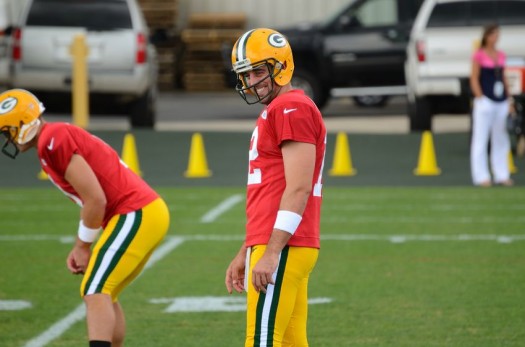 Just like in the NFL, businesses decide to take on risks based on how potentially rewarding they perceive their business ventures to be. The New England Patriots knew there were some risks associated with renewing Aaron Hernandez’s contract for substantial gains. It had to weigh the pros and cons, like many NFL teams who bet on players who don’t produce the expected economic and prestigious team rewards. Ricky Williams, Pac Man Jones, and Chad Ochocinco are examples of great players who did not live up to the expectations of those who gambled on their character. There are plenty of examples of teams with talented players who terrorize their organizations with negativity.
Just like in the NFL, businesses decide to take on risks based on how potentially rewarding they perceive their business ventures to be. The New England Patriots knew there were some risks associated with renewing Aaron Hernandez’s contract for substantial gains. It had to weigh the pros and cons, like many NFL teams who bet on players who don’t produce the expected economic and prestigious team rewards. Ricky Williams, Pac Man Jones, and Chad Ochocinco are examples of great players who did not live up to the expectations of those who gambled on their character. There are plenty of examples of teams with talented players who terrorize their organizations with negativity.
Business leaders face these issues too — weighing the benefits of having a superstar versus the potential for destructive behavior. In business, though, we have it a little easier … plenty of raw talent without baggage.
Many people are talking about these recent incidents, and most are saying judging character is hard to do in an NFL prospect (Just Google NFL character problems). Sure, it’s hard to match the right candidate with the right job, but it needs to be done. A solid interview and assessment program that puts significant weight on a person’s character should produce positive results. In the meantime, business leaders should continue their efforts to flush out the problem individuals before their teams are left to deal with a greater responsibility load.
Fortunately for businesses, most of these problem-generators are easier to fire than a talented terror boasting a $40 million dollar contract. Amazingly, business leaders still struggle to make this call, with all that they invest in time, money, and sheer effort into weeding out these types of individuals.
In the NFL, teams with a long history of hiring players with good football character have more success. Even with the Patriots’ recent run-in with disaster, the team has been a good example of a franchise finding players with good football character.
Chicago Bears GM Jerry Angelo has put together a few good teams and he recently wrote an article on how much of a difference football character makes on teams. These types of players provide a unique level of enthusiasm, professionalism, and leadership that infects everyone on their team. Over the years, teams with class acts like Aaron Rodgers, J.J. Watt, Tom Brady, Jerry Rice, John Lynch, and Russell Wilson rise to the occasion more often than others; they win championships and they are consistently top producing organizations.
In business, the people with good business character are the people driven to succeed, show discipline, and support company objectives faithfully. They also distinguish themselves by becoming mentors for others. They are positive role models within their companies as they set the bar for excellence in both character and productivity. Just like Jerry Angelo, business leaders need to make business character one of their priority requirements for finding the best team players.
Oftentimes, in the NFL the players who are unable to be part of a team get traded to relieve their teams from the headaches they bring to the locker room. They move these players out for draft picks or for guys with good football character and potential.
We can learn from this. If you find someone else’s superstar on the street, ask yourself why they are there. Why wouldn’t their team do everything to keep that person? If they really were a top producer, then it’s highly unlikely they were let go for their performance and much more likely because of their character and temperament. You are better off spending more time looking harder for the next Aaron Rodgers or J.J. Watt, team players with talent.
image of Aaron Rodgers from 123rf